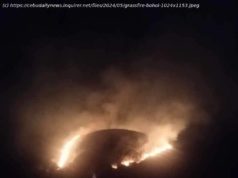Exaggeration and misdirection can only damage the conservation movement’s credibility.
Sometimes the conservation movement and its friends in the media get carried away.
Last week, for example, the Sierra Club sent out a fundraising email decrying the House Natural Resources Committee’s proposed National Monument Creation and Protection Act, H. R. 3990, as a „No More Parks“ bill. It then went on to solicit a $5 donation to fight the legislation.
The liberal news website Think Progress had a similar framing when it published an article about the bill with this as a sub-title: „It would place extreme restrictions on creating new national parks—unless the president wanted to make monuments smaller.“
The site tweeted out the article to its 847,000 followers with this message affixed atop it:
And numerous others have latched on to this sound bite, consistently calling H. R. 3990 a „No More Parks“ or a „No New Parks“ bill, thus obliquely portraying it as a direct attack on parks.
The trouble is, the legislation in question has nothing to do with national parks, at least not in any immediate sense. It is an assault on national monuments, not parks, and that’s an important difference.
Specifically, the bill aims to totally gut the Antiquities Act, the 1906 legislation that enables the executive branch to unilaterally protect publicly owned land by declaring national monuments. Such monuments include Stonewall in New York City, Dinosaur in Utah, and Muir Woods in California, among many others. Monuments, though, are distinct from national parks. Parks, like Yellowstone, Yosemite, and Glacier, can only be created by an act of Congress. Monuments can be created by a president acting alone.
It is true that many of our most iconic national parks were first protected as national monuments. As the Center for Western Priorities recently pointed out, the Antiquities Act is responsible for providing initial protection to „nearly half of all national parks, including the Grand Canyon, Acadia and Arches.“ A large portion of the Grand Canyon, for instance, was set aside as a national monument by President Theodore Roosevelt well before Congress officially established the landscape as a national park.
The fact remains, though, that H. R. 3990 is not a „No More Parks“ bill. It seeks to eliminate the executive branch’s power to unilaterally designate national monuments and will have no impact on Congress‘ ability to create new national parks. Implying otherwise is simply untrue, and causes unnecessary and unproductive confusion.
The opponents of conservation, people like Representative Rob Bishop (R-Utah), the sponsor of H. R. 3990, regularly use deception and misdirection to push their political objectives. Even the name of Bishop’s bill—the National Monument Creation and Protection Act—is deeply dishonest. During his administrative review of recently established national monuments, meanwhile, Secretary of the Interior Ryan Zinke was regularly caught promoting an array of falsehoods about the Antiquities Act and its creations. In a Senate hearing in September, for instance, Senator Martin Heinrich of New Mexico denounced numerous factual errors in the final report that the secretary produced for the president at the end of his monument review.
Public lands advocates rightly call out these politicians when they lie. But conservationists will lose their moral high ground to do so if they begin to engage in similar tactics. Bishop’s very bad bill is about national monuments, not parks, and everyone who is paying attention knows it.






